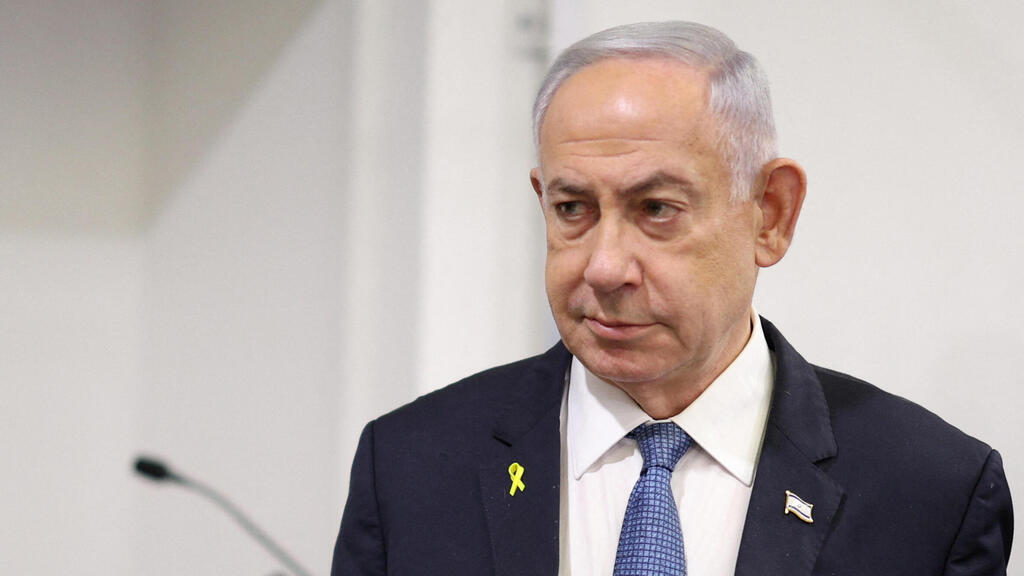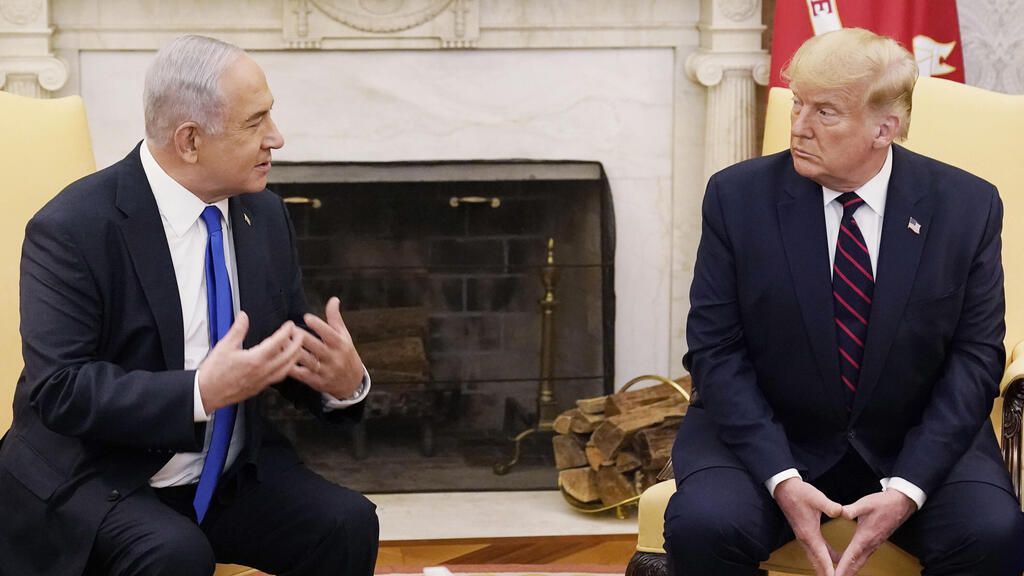Getting your Trinity Audio player ready...
Amid the torrent of arrogance and bravado that marked U.S. President-elect Donald Trump's election victory speech, one statement shone bright like a diamond, offering a weary world a glimmer of relief from rivers of blood, hunger, maimed children, ruined cities and torture chambers: "I'm not going to start wars, I'm going to stop wars," Trump declared.
But Trump's words have a short shelf life. After his grand pronouncements about ending wars, when asked if he could foresee a scenario involving a war between the U.S. and Iran, he replied, "Anything can happen," essentially meaning it depends on his mood and who’s annoyed him more that day.
Trump is also known for adopting the advice of whoever whispers in his ear last, and lately, Prime Minister Benjamin Netanyahu’s whispers — both direct and indirect — have been frequent: Iran, Iran and Iran again. Netanyahu isn’t just racing to destroy Iran's nuclear facilities; he’s in a fight of his political life to maintain his power. In such times, leaders tend to "wag the dog."
Is the USS Harry S. Truman heading to the Middle East a sign of an American decision to bring all the smart bombs into play against Iran? Washington is officially abuzz with talk of moves against Iran. Both U.S. President Joe Biden and Trump have declared they won’t allow Iran to obtain nuclear weapons.
At the same time, the American capital has started to see Israel in a new light — one of competence and strength. After October 7, Israel was perceived as having weak leadership and an underperforming military — a victim, but also a loser.
However, the tides have turned: Yahya Sinwar was eliminated, Hassan Nasrallah taken out, Bashar Assad toppled, and Israel managed to destroy much of Iran’s air defenses and disrupt its ballistic missile fuel production with American support.
Yet, none of these victories brought fundamental change. Wars that don’t end with a favorable political settlement for both sides are simply bloodletting exercises to preserve ruling power.
Still, the Middle East’s new reality — where Israel is once again viewed as strong — has created a stable bridge that forces are planning to use to charge into a weakened Iran. Iran’s spiritual leader and its ayatollahs fear targeted assassinations. Iran has lost its proxies and its dreams of encircling Israel with a “ring of fire” have evaporated.
Trump dealt a dramatic blow to Israel in the past by tearing the nuclear deal with Iran apart, one Iran was largely adhering to. The hand that tore up the agreement was Trump’s, but the voice urging him on was Netanyahu’s
Netanyahu could have presented a powerful victory image: Einav Zangauker embracing her captive son Matan, hostages reunited with their loved ones. In a gesture of triumph, he could have pursued an "all-for-all" hostage deal. But for now, it’s “Iran first.” The appetite for success grows.
Trump dealt a dramatic blow to Israel in the past by tearing the nuclear deal with Iran apart, one Iran was largely adhering to. The hand that tore up the agreement was Trump’s, but the voice urging him on was Netanyahu’s.
Iran has since made significant strides toward a nuclear weapon — on Trump’s watch. He promised a better deal but never delivered, just as he failed to produce the "deal of the century" he pledged for Israel and the Palestinians.
Get the Ynetnews app on your smartphone: Google Play: https://bit.ly/4eJ37pE | Apple App Store: https://bit.ly/3ZL7iNv
 Orly Azoulay
Orly AzoulayWhen Trump enters the White House, he’ll face a deadly dilemma: Should he ride the momentum and go all-in against Iran or will he stun the world by achieving a Middle East normalization agreement that includes Iran and aligns with Saudi Arabia's axis?
Either option could blow up in his face — and especially in ours. A normalization deal is preferable. While it would require painful concessions from Israel, the pain would be far less severe.




